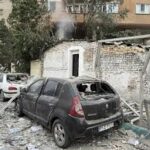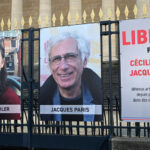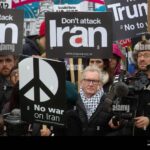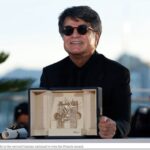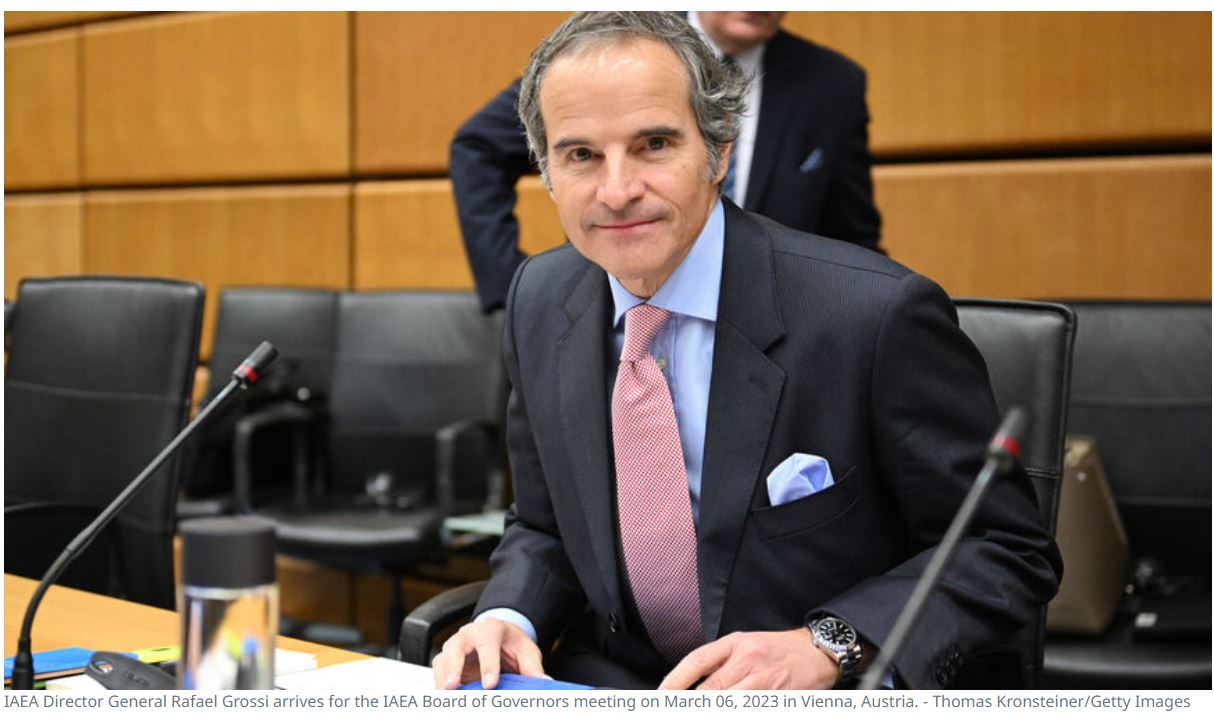
Plus, US senators take aim at Saudi Arabia’s rights record and the administration proposes cutting Tunisia’s economic aid.
March 15, 2023
WASHINGTON — The United Nations’ atomic watchdog chief voiced cautious optimism on Wednesday that Iran will boost inspector access and restore monitoring equipment, and said he’s sending a technical team in the next few days to follow up on Tehran’s commitments.
“I hope there won’t be any trouble,” International Atomic Energy Agency (IAEA) Director General Rafael Grossi told Al-Monitor during a briefing with reporters.
Grossi was in Washington on Wednesday to update Biden administration officials on Iran’s latest nuclear activities and the “constructive role” the Vienna-based agency can play in efforts to salvage the nuclear deal known as the Joint Comprehensive Plan of Action (JCPOA).
Earlier this month, Grossi met with President Ebrahim Raisi and other senior Iranian officials in Tehran after the UN agency’s recent detection of uranium particles enriched to near weapons-grade levels.
Following his visit, Grossi said Iran agreed to restore monitoring equipment, including surveillance cameras that Tehran removed last summer. The Iranians, Grossi said, also agreed to increase inspections by 50% at the underground Fordow nuclear site.
“My understanding is that we have agreed on these things,” Grossi said. “I know what I agreed [to] in Tehran, and we are sending our technical team to work on that. If there is a problem, I will report it.”
“We still need to start the process of getting these additional, further monitoring and verification capacities,” Grossi said. The process could take “maybe weeks or days.”
In a joint statement with the IAEA, Iran also said it would “provide further information” on the uranium traces found at three of its old but undisclosed nuclear sites. Iran had demanded the IAEA shut its multiyear investigation into the nuclear materials as a condition of its re-entry into the JCPOA.
“It’s in [Iran’s] hands,” Grossi said of the long-running probe. “If they give us credible information we can work on, maybe we can move faster in trying to clear this.”
Some experts are skeptical of Iran’s latest commitments, which were made mere days before the IAEA’s 35-member Board of Governors held its quarterly meeting. The United States and the JCPOA’s European signatories — Britain, France and Germany — ultimately refrained from seeking a resolution censuring Iran for its nuclear advances and lack of cooperation with the agency.
“The Iranians’ incentive was to avert censure at the Board of Governors, which they did,” said Henry Rome, a senior fellow at the Washington Institute for Near East Policy. “And so the immediate pressure for Iran to compromise on this has evaporated for the time being, unfortunately.”
The IAEA told member states last month that its inspectors had detected at Iran’s Fordow site particles of uranium enriched to 83.7% purity, just shy of the 90% level that is considered weapons-grade. Iran had already been openly enriching uranium to 60% purity in breach of the landmark nuclear deal that President Joe Biden came into office hoping to restore.
On-and-off talks to revive the deal collapsed by late summer after the Iranians put forward demands that US officials said fell outside the scope of the original nuclear deal. Iran’s violent crackdown on protesters and continued supply to Russia of armed drones for use in Ukraine has further sunk prospects for renewing the JCPOA.
Rome said the recent China-brokered deal to re-establish relations between Iran and Saudi Arabia could further dim prospects of a resurrected JCPOA because it demonstrates to Tehran that it doesn’t need a nuclear agreement to reap regional benefits.
“It helps to puncture the isolation that the West had been trying to impose on Iran for the nuclear issue, Russia and domestic repression,” he said.
al-monitor.com

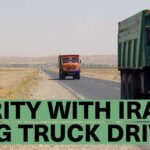





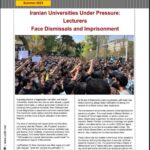
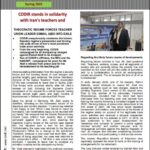




 Posted in
Posted in 
